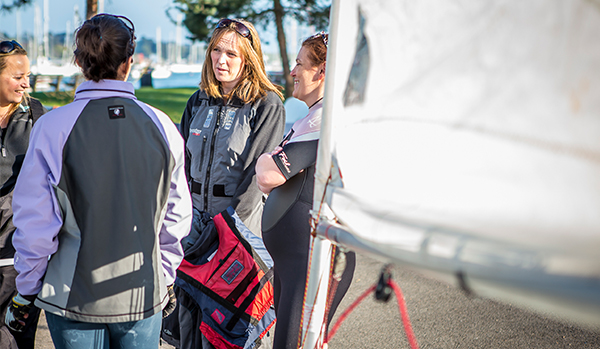Supporting instructors' mental health

As instructors we often face a challenging combination of anti-social hours and time away from home - some of you will even have to manage living in a confined space with complete strangers! So why is mental health important and how do you recognise signs of poor or worsening mental health?
What is mental health?
Everybody has mental health, it’s just like our physical health and like our physical health it can take a dip. Sometimes this is temporary e.g. a cold or cough, when a cough persists for some time we seek help from a doctor/pharmacist. This is the same for our mental health.
How big a problem is this?
- 1 in 4 adults will experience a mental health problem in any one year (Adult Psychiatric Survey 2007 (England)
- In 2017 the World Health Organisation announced that depression is now the leading cause of ill health and disability worldwide.
- 1 in 3 visits to the GP are mental health related (NHS England blog in 2013. It’s time to stop treating mental health as a “Cinderella” issue)
- In an average week in the UK over 1 million prescriptions for antidepressants will be issued (Health and Social Care Information Centre 2014)
What are mental health problems?
- They can affect the way people think, feel or behave
- They can affect any of us irrespective of age, personality or background
- They can appear as a result of experiences in both our personal and working lives – or they can just happen
- They include a wide range of experiences: some problems may be quite mild or moderate while others may take on a more severe form, affecting a person’s ability to cope with day-to-day life
What if a fellow instructor talks to me about their mental health?
- They obviously like and trust you, if they are having a conversation with you
- You don’t need to be an expert on mental health to offer them support. It’s not your role to fix them, just to listen
- Your response will depend on how well you know them, but they are reaching out for your support
- Encourage them to talk and listen non-judgementally
- Ask if they need support
- Provide reassurance
- Everyone’s experience is different, don’t make assumptions
- Encourage them to seek professional help. Ask if they have seen their GP or encourage them to contact another organisation like their local Mind. Organisations like Mind have lots of useful information on their website, from causes and symptoms to seeking help for mental health problems.
- If appropriate you might want to explore whether working helps, or do they need to take a step back from sailing and responsibilities?
- Show your support after the initial conversation, check in with them, ask how they are? They might want to talk or they might not
- Look after yourself, your mental health is important too
Within an organisation it’s very likely that this will fall within your safeguarding policy, as such if you need to break confidentiality we would recommend that this is done with the support of your Welfare/Safeguarding officer or another senior member of staff.
There are a number of reasons you might break confidentiality, for example if the person or others are in immediate danger. Mind provides further guidance on this in their toolkit for the sport and physical activity sector available on their website.
So what’s important?
- You don’t need to be an expert!
- Everyone's experience of a particular diagnosis will be different
- Don’t be afraid
- Listen
- Take time and be patient
RYA Sailability has been working with Mind, the mental health charity, to develop their resources around mental health. Mind has a range of support available including information resources, online peer support, a network of 120 local Minds and info and legal lines.
For more instructor resources and ideas, visit the CPD Hub on the Training Support Site.
Originally published in RYA Wavelength April 2020



